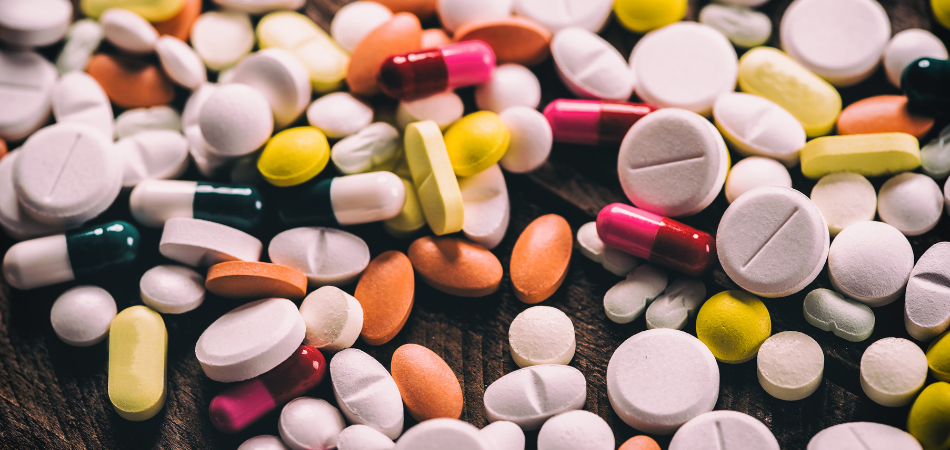What makes a drug a hallucinogen?
A drug is classed as a hallucinogen if it can significantly change how you perceive things, think and feel. Here’s what makes a drug fall into this category:
- Perceptual changes: Hallucinogens can make you see or hear things that aren’t there. They can also distort your sense of time and space and even how you experience your body.
- Altered states of consciousness: These drugs can shift your consciousness, making you feel like you’re in a different reality or state of mind.
- Brain chemistry: Most hallucinogens interact with serotonin receptors in the brain, especially the 5-HT2A receptor, which plays a big role in their effects.
- Cognitive distortion: Hallucinogens can change one’s thought patterns, sometimes leading to new perspectives, confusion and trouble concentrating.
- Physical effects: While mainly affecting your mind, they can also cause physical changes like increased heart rate, sweating and changes in coordination.
What drugs are classed as hallucinogens?
The following drugs are classified as hallucinogens because of their ability to cause significant alterations in perception, mood and cognition, leading to experiences that are markedly different from those induced by other substances.
| Drug | Effects |
|---|---|
| LSD | Causes vivid visual hallucinations, altered sense of time and profound changes in thought processes. |
| Psilocybin | Found in magic mushrooms; induces visual and auditory hallucinations, altered perception of time and space. |
| Mescaline | Found in peyote cactus; produces visual hallucinations, enhanced colour perception and changes in body image. |
| DMT | Causes intense visual and auditory hallucinations, a sense of detachment from reality and altered sense of self. |
| Ayahuasca | A brew containing DMT induces strong visual and auditory hallucinations, altered sense of time and reality. |
| Salvia | Causes vivid visual hallucinations, altered perception of reality and intense changes in sensory experiences. |
| PCP | Induces distorted perceptions of sounds and reality, feelings of detachment and visual hallucinations. |
| Ketamine | Causes dissociation, altered perception of time and space and visual hallucinations. |
| MDMA | Primarily a stimulant but can cause mild hallucinations, altered perception of time and enhanced sensory input. |
Can you become addicted to hallucinogens?
Hallucinogens aren’t usually considered highly addictive like other drugs since they don’t cause physical dependence or make you crave them compulsively. But there are a few things to keep in mind.
With repeated use, people can develop a tolerance to hallucinogens, meaning they might need to take more to get the same effect, which can increase the risk of negative experiences. Some people might develop a psychological dependence, feeling a strong urge to use the drug often to re-live its effects, which can interfere with their mental health and daily life.
Even though hallucinogens aren’t physically addictive, using these types of drugs frequently can become a habit. Regular, long-term usage can bring about various risks, like psychological distress or, in rare cases, ongoing perceptual changes known as hallucinogen-persisting perception disorder (HPPD) or flashbacks.
So, while hallucinogens typically don’t cause physical addiction, they can lead to tolerance and psychological dependence, and their use comes with potential risks and downsides.
Will I experience any withdrawal symptoms if I detox from hallucinogens?
Unlike other narcotics, not all hallucinogens have withdrawal symptoms. While some drugs might cause both physical and psychological withdrawal, hallucinogens may lead to tough psychological symptoms, like flashbacks (sometimes known as HPPD).
HPPD is characterised by persistent visual disturbances, such as seeing halos around objects or experiencing visual snow long after the drug use has stopped. This occurs due to lasting changes in the brain’s visual processing areas caused by the hallucinogenic substance. While HPPD isn’t a common withdrawal symptom, it can be possible, and medical attention and care need to be sought in cases like this..
However, it’s known that some hallucinogens, like ketamine, can cause a range of withdrawal symptoms like agitation, confusion, hallucinations, anxiety and depression. These symptoms can be pretty intense and might need medical support to manage.
How can a detox centre help with hallucinogen detox?
A detox centre can be instrumental in helping you through hallucinogen detox by providing a structured and supportive environment. Here are several ways a detox centre can help:
What can I do to make the hallucinogen detox easier?
Entering rehab and detox programmes can sometimes lead to the misconception that medical professionals will handle everything. While they provide essential support and care, your own efforts are crucial for a successful recovery. To help make your hallucinogen detox smoother and more beneficial, here are a few tips to consider:
- Use visual and auditory anchors: Keep familiar, comforting visual aids (like photos of loved ones) and soothing sounds (like calm music or nature sounds) around. These can help reduce anxiety and create a sense of safety.
- Stay in the present: Mindfulness and meditation can help anchor you in the present moment, reducing the impact of lingering hallucinogenic effects. Apps like Headspace or Calm offer guided meditations tailored for this purpose, but during hallucinogen rehab, you’ll have access to professionals who can help with guided meditation.
- Maintain a stable routine: Stability and predictability can counteract the disorientation that sometimes accompanies hallucinogen withdrawal, so it’s important to stick to the routine that the rehab centre provides for you.
- Engage in creative activities: Creative outlets like drawing, painting or writing can help process and express the unique experiences and emotions associated with hallucinogen use and detox.
- Hydrate and nourish with care: While hydration is important, the types of fluids and foods that support brain health and neurotransmitter balance should also be considered. Foods rich in omega-3 fatty acids, antioxidants and vitamins can be particularly beneficial, all of which will be provided by the rehab centre of your choice.
- Practice reality testing: If you experience lingering hallucinations, practice reality-testing techniques. Remind yourself of your environment and use rational thinking to distinguish between reality and hallucination. If hallucinations become too difficult to handle, remember that you’re under the caring watch of the centre’s medical professionals, who can help you through them.
What are the next steps?
If you or a loved one is struggling with hallucinogenic drugs and wants to lead a life without them, consider a hallucinogen rehab centre. They can provide the support and guidance needed to achieve a healthy, drug-free life. Reach out to us today and find the right centre for you.
Call our admissions line 24 hours a day to get help.
(Click here to see works cited)
- López-Giménez JF, González-Maeso J. Hallucinogens and Serotonin 5-HT2A Receptor-Mediated Signaling Pathways. Curr Top Behav Neurosci. 2018;36:45-73. doi: 10.1007/7854_2017_478. PMID: 28677096; PMCID: PMC5756147.
- NIDA. 2024, April 9. Psychedelic and Dissociative Drugs. Retrieved from https://nida.nih.gov/research-topics/psychedelic-dissociative-drugs on 2024, May 20
- Smith DA, Bailey JM, Williams D, Fantegrossi WE. Tolerance and cross-tolerance to head twitch behavior elicited by phenethylamine- and tryptamine-derived hallucinogens in mice. J Pharmacol Exp Ther. 2014 Dec;351(3):485-91. doi: 10.1124/jpet.114.219337. Epub 2014 Sep 30. PMID: 25271256; PMCID: PMC4309922.
- Substance Abuse and Mental Health Services Administration (US); Office of the Surgeon General (US). Facing Addiction in America: The Surgeon General’s Report on Alcohol, Drugs, and Health [Internet]. Washington (DC): US Department of Health and Human Services; 2016 Nov. [Table], LSD (lysergic acid diethylamide) Available from: https://www.ncbi.nlm.nih.gov/books/NBK424847/table/appd.t7/
- Müller F, Kraus E, Holze F, Becker A, Ley L, Schmid Y, Vizeli P, Liechti ME, Borgwardt S. Flashback phenomena after administration of LSD and psilocybin in controlled studies with healthy participants. Psychopharmacology (Berl). 2022 Jun;239(6):1933-1943. doi: 10.1007/s00213-022-06066-z. Epub 2022 Jan 25. PMID: 35076721; PMCID: PMC9166883.







